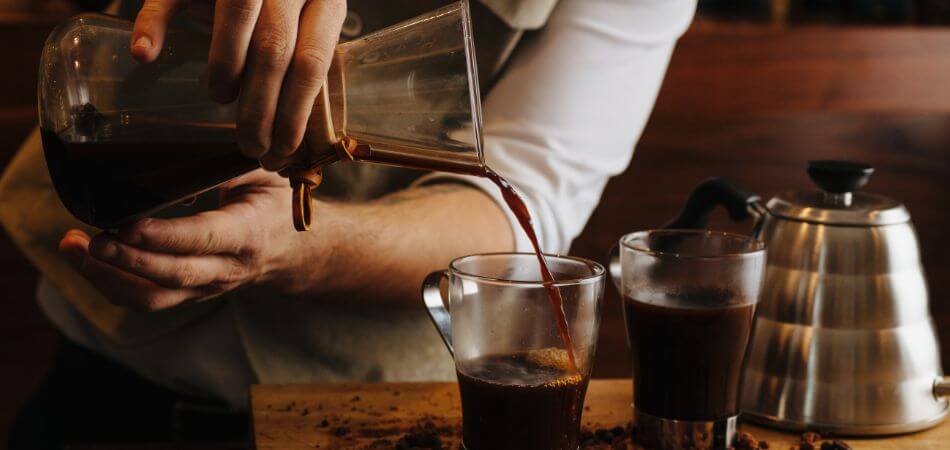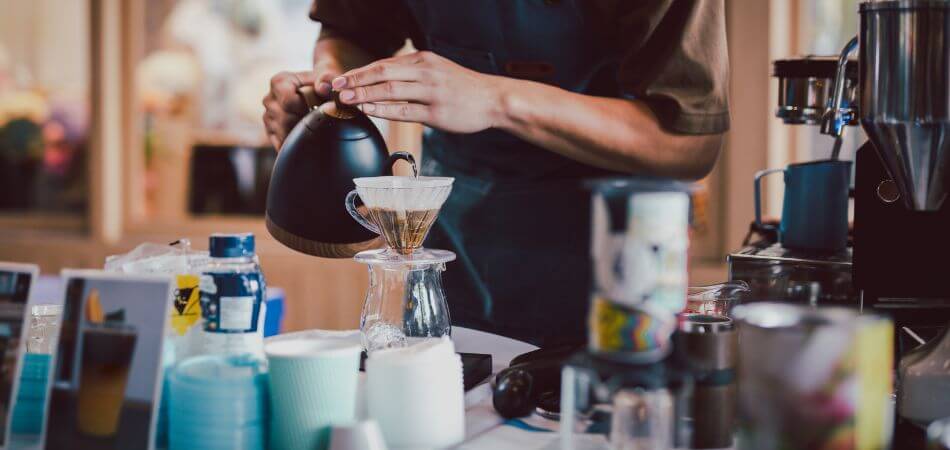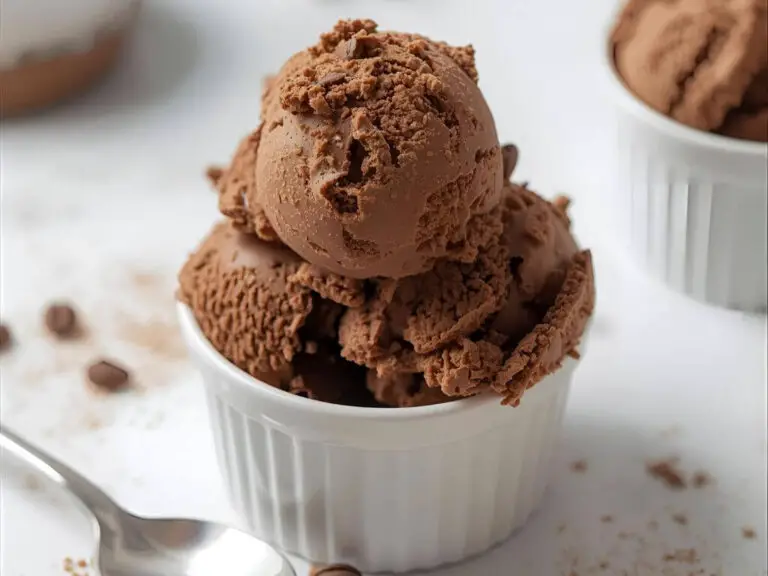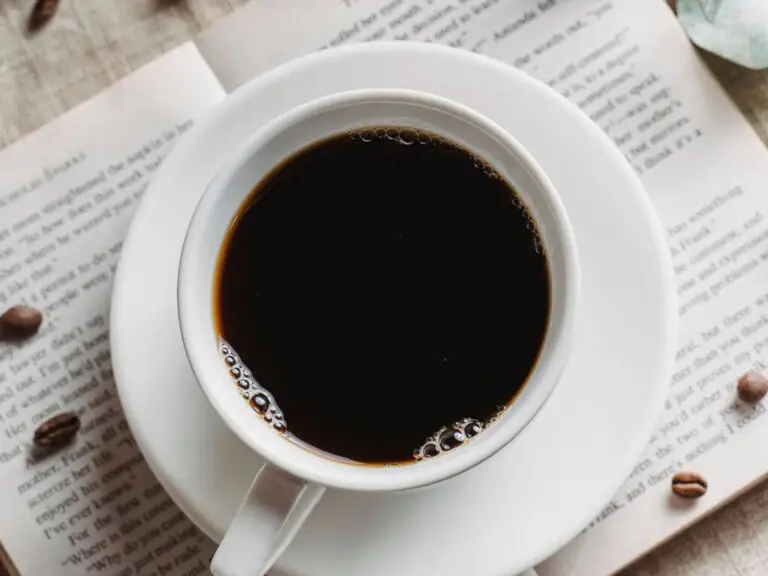Why Does Coffee Make You Poop So Quickly?
Ever take that first sip of coffee in the morning and suddenly feel… the urge? You’re not alone. Millions of coffee lovers experience the same sudden call of nature shortly after their morning brew. But why does coffee make you poop? Is it the caffeine? The acidity? Or something else entirely?
Turns out, science has some pretty clear answers. Coffee doesn’t just wake up your brain—it also wakes up your digestive system in a big way. From stimulating gut contractions to triggering hormone releases, your daily cup has a direct line to your bowels.
In this article, we’ll break down:
✅ The science behind coffee’s laxative effect
✅ Why decaf coffee can still make you poop
✅ How your gut microbiome reacts to coffee
✅ Practical tips to manage (or embrace) the coffee-poop phenomenon
So grab your mug, settle in, and let’s get to the bottom of this (literally).

The Science Behind Coffee’s Laxative Effect
Coffee Jumpstarts Your Digestive System
Research shows that coffee influences digestion in three major ways:
A. It Boosts Stomach Acid Production
- Coffee (especially dark roast) increases gastric acid, which helps break down food faster.
- More acid = quicker digestion = signals your intestines to get moving.
B. It Triggers Colon Contractions
- A 1990 study found that coffee stimulates the colon as strongly as a 1,000-calorie meal—within just 4 minutes of drinking it!
- Even decaf coffee had a similar effect, meaning caffeine isn’t the only factor.
C. It Releases Digestive Hormones
- Coffee prompts the release of gastrin and cholecystokinin (CCK), hormones that:
- Speed up bowel movements
- Increase bile production (helps digest fats)
Takeaway: Coffee doesn’t just wake you up—it wakes up your entire digestive tract.
Caffeine vs. Decaf: What’s the Real Culprit?
If Decaf Also Makes You Poop, What’s Going On?
Many assume caffeine is the main trigger, but science says otherwise. Here’s why:
A. Caffeine’s Role
- Stimulates peristalsis (intestinal muscle contractions).
- Acts as a mild diuretic, which can soften stool.
B. Decaf’s Surprise Effect
- Studies show decaf coffee still triggers bowel movements in 30% of people.
- The likely culprits? Chlorogenic acids and melanoidins, compounds that:
- Increase stomach acid
- Irritate the gut lining (in a good way for digestion)
Comparison Table:
| Factor | Caffeinated Coffee | Decaf Coffee |
|---|---|---|
| Colon Stimulation | ✅ Strong | ✅ Moderate |
| Stomach Acid Boost | ✅ High | ✅ Medium |
| Hormone Release | ✅ Yes | ✅ Yes |
Takeaway: Both caffeinated and decaf coffee can send you running—just in slightly different ways.

Coffee’s Impact on Your Gut Microbiome
Your gut is home to trillions of bacteria that play a crucial role in digestion – and coffee directly interacts with them. Here’s what happens:
A. The Good: Coffee May Boost Healthy Bacteria
Recent studies show coffee drinkers tend to have:
- Greater diversity of gut microbes (linked to better digestion)
- Higher levels of Bifidobacteria (helps break down fiber)
- More Anti-inflammatory bacterial strains
B. The Bad: Potential Irritation for Sensitive Stomachs
While many benefit, some experience:
☕ Increased acid reflux (due to relaxed esophageal sphincter)
☕ Worsened IBS symptoms in sensitive individuals
☕ Temporary gut inflammation from coffee’s polyphenols
Pro Tip: If coffee upsets your stomach, try:
- Low-acid varieties (cold brew, dark roast)
- Drinking with food to buffer acidity
- Probiotic foods to balance your microbiome
Why Some People Feel It More Than Others
Not everyone gets the “coffee poop” effect equally. These factors determine your sensitivity:
Key Influencing Factors
| Factor | High Sensitivity | Low Sensitivity |
|---|---|---|
| Genetics | Fast metabolizers | Slow metabolizers |
| Gut Health | IBS sufferers | Healthy digestion |
| Drinking Habits | Empty stomach | With food |
| Dairy Additives | Lactose intolerant | Lactose tolerant |
The Stress Connection
When combined with:
- Morning cortisol spikes
- Anxiety
Coffee’s effects amplify because:
- Stress slows digestion
- Coffee speeds it up
- Your gut gets mixed signals → urgency!

Coffee vs Other Caffeinated Drinks
Why coffee stands alone:
✔ Higher acidity than tea or soda
✔ Unique compounds (chlorogenic acids) absent in energy drinks
✔ Temperature effect – hot liquids stimulate digestion more
Comparison of Common Stimulants:
| Beverage | Laxative Effect | Primary Trigger |
|---|---|---|
| Coffee | Strong | Acids + caffeine |
| Black Tea | Moderate | Tannins |
| Energy Drinks | Mild | Caffeine only |
| Soda | Minimal | Carbonation |
How to Manage the Effect (If Needed)
For Those Who Want LESS Urgency
- Try cold brew (67% less acidic)
- Add cinnamon (can slow digestion slightly)
- Eat first – oatmeal creates a protective barrier
- Switch to arabica (less harsh than robusta)
For Those Who RELY on It
If using coffee for regularity:
✅ Stay hydrated (coffee is dehydrating)
✅ Get fiber from other sources too
✅ Watch for dependency signs
When to See a Doctor
While usually harmless, consult if you experience:
⚠ Blood in stool
⚠ Chronic diarrhea
⚠ Severe cramping
These could indicate:
- IBS
- Caffeine sensitivity
- Underlying GI conditions
FAQ’s
Is it healthy for coffee to make you poop?
Yes, it’s normal! Coffee stimulates your digestive system, which can make you poop—it’s a natural and healthy reaction for most people.
Why am I pooping so much after coffee?
Coffee can stimulate your digestive system, thanks to its caffeine and compounds that activate gut muscles—totally normal for many people!
Does coffee clean your colon?
Coffee isn’t a colon cleanser, but it can stimulate your digestive system and help keep things moving naturally!
Should I stop drinking coffee if it makes me poop a lot?
If coffee makes you poop a lot, it’s totally normal! You don’t have to quit—try reducing your intake or switching to a lower-caffeine option to see if it helps. 😊
Conclusion
Why Does Coffee Make You Poop?
✔️ Stimulates stomach acid → faster digestion
✔️ Triggers colon contractions → urgency
✔️ Boosts hormones (gastrin, CCK) → bowel movement signals
Final Advice:
- Embrace it if it helps your routine.
- Adjust (low-acid, food pairing) if it’s too intense.







